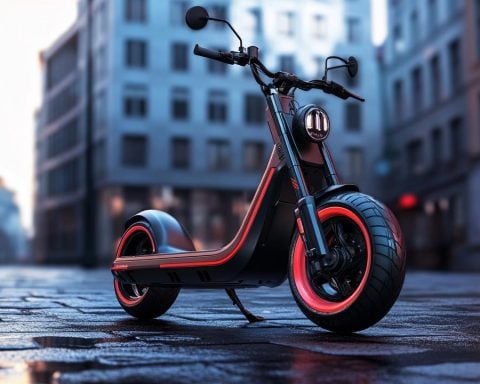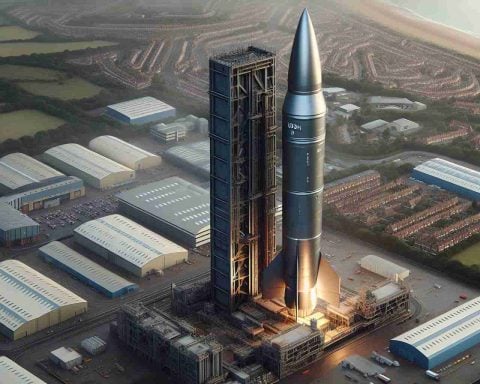In a bold statement, tech visionary Elon Musk has reignited the debate on the future of air combat, suggesting that drones will soon eclipse traditional manned fighter jets. Musk, who is preparing to lead the newly formed Department of Government Efficiency (DOGE) with biotech entrepreneur Vivek Ramaswamy, strongly criticized the Pentagon’s reliance on the F-35 fighter jet program.
Advocating for Unmanned Aerial Vehicles (UAVs), Musk highlighted the precision and safety benefits that drones offer over human-piloted aircraft. Through a social media post, Musk criticized the ongoing investment in aircraft like the F-35. To emphasize his point, he shared footage showcasing the advanced capabilities of synchronized drones in action.
This stance aligns with broader federal budget reform efforts, as the Pentagon faces pressure to reduce spending. The F-35 program, developed by Lockheed Martin, represents one of the most costly ventures within the Department of Defense. Musk argued that the aircraft’s multifaceted design, intended to fulfill various roles, has led to its inefficiencies.
Musk’s remarks have stirred significant discussion, not only challenging the status quo but also potentially disrupting relations with figures like former President Donald Trump. Trump has previously praised the F-35, regarding it as a key asset in America’s defense arsenal.
The Pentagon, however, remains steadfast in its support of the F-35, asserting the aircraft’s effectiveness in combat scenarios. Despite Musk’s comments, officials emphasize that pilots prefer it in operational engagements, highlighting its ongoing value in military strategy.
Drones Over Dogs: How Technology is Redefining Warfare
In recent discussions about the future of air combat, the emphasis has shifted dramatically from manned fighter jets to Unmanned Aerial Vehicles (UAVs). While the statement from Elon Musk ignited this debate, it’s crucial to explore the broader implications of this shift on technology and society.
The Rise of Intelligent Drones
The development of UAVs signifies more than just a military advancement; it represents a transformation in how technology can blend machine intelligence with real-world applications. Modern drones operate with sophisticated AI, allowing them to execute complex maneuvers and conduct surveillance more effectively than traditional aircraft. This new wave of technology hints at future scenarios where human intervention is minimized, leading to a new era of precision warfare.
Advantages and Controversies
One undeniable advantage of drones is their potential to reduce human casualties by removing pilots from harm’s way. Additionally, the operational cost of drones is significantly lower than maintaining and flying manned jets, offering budgetary relief to defense departments worldwide.
However, there are controversies surrounding the increasing reliance on UAVs. From ethical concerns about decision-making in combat to the potential for new forms of warfare, drones open the door to conversations about accountability and moral responsibility. An autonomous drone making life-or-death decisions without human oversight presents a chilling scenario that prompts regulatory and philosophical questions.
Impacts on Technology and Society
The proliferation of drone technology has significant implications for various sectors beyond the military. From agriculture to delivery services, drones could revolutionize multiple industries by providing efficiency and precision that was previously unattainable. This emerging reality raises the question of how society will adapt to these technological transformations and what regulatory frameworks will be necessary to guide their use.
Furthermore, as the technology develops, there is potential for civilian applications to harness advanced features initially designed for military purposes. This cross-pollination of technology could lead to innovative solutions in everyday life, offering new conveniences and efficiencies.
Balancing the Pros and Cons
The integration of drones into everyday operations presents both opportunities and challenges. Among the advantages are reduced risks to human life during operations and potential cost savings. However, drones also introduce new complications, such as cybersecurity risks and the potential erosion of privacy and personal freedoms.
Conclusion: Are We Ready for a Drone-Dominated Future?
As society nears the possibility of a drone-dominated landscape, it is essential to weigh these technological advancements’ pros and cons carefully. The question remains: are the current structures in place prepared to handle the rapid evolution of this technology, or will new frameworks be needed to manage its growth responsibly?
For more insights, visit credible sources such as BBC and CNN for ongoing analysis and reports on advancements in drone technology and their broader societal impact.


















